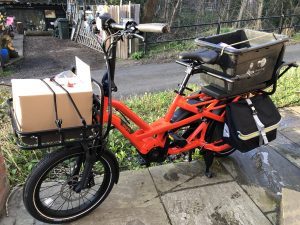Climate change: we have the technology
 Listening to the radio this morning, during an item about the COP27 climate change conference, I heard a UK politician refer to the scope for future technologies to save us. “Whoa, Nelly,” I thought to myself.
Listening to the radio this morning, during an item about the COP27 climate change conference, I heard a UK politician refer to the scope for future technologies to save us. “Whoa, Nelly,” I thought to myself.
Unlike the climate doomsters, I’m a techno-optimist and strongly believe that technology could deliver a low carbon society. It’s well understood that we have all, or nearly all, the technology we need, the problem is uptake.
Take transport. When I walked back from dropping the youngest at school this morning, I passed just two EVs and one hybrid amongst the dozens of internal combustion engined (ICE) cars (including mine*). Almost every house has at least one car outside (including mine*). At school a dedicated minority bring their kids to school by bike, but despite our recent efforts with a ‘school street’ to encourage walking and cycling, the number of cars still outnumbers the number of bikes. There is no technological barrier to all of this transport being zero emissions.
The problem is the cost of change (in the case of EVs or, for many, cargobikes), a lack of infrastructure (on-street EV charging, safe walking and cycling routes), the fact a car lasts about 13 years (so once you buy an ICE car you’re locked in for the foreseeable), and, more than we’d like to admit, a fear of the new.
I see this in my own family (this is the * bit). We’ve evolved our lifestyle over 15 years around reducing car use: I work from home, when Mrs K goes in to work she cycles to the station to get the train, the older two cycle to school, the youngest walks (we chose schools appropriately), and when I take the latter to football practice, we go by cargo-bike (which also covers errands requiring up to 100kg of cargo – see pic). It has got to the point where our car can easily be made redundant by joining the local car club, so we’re planning to get rid in the new year before its insurance renewal date.
Change is both difficult and simple. I use the ‘elephant-rider-path’ model of change which imagines a rider guiding an elephant along a path. The rider is our logical brain which needs information about what they need to do and how to do it. The elephant is our emotional brain which may fear change (eg EV range anxiety, cycle safety etc) and needs to be enthused that change is for the good, and lastly the path is our immediate environment which is currently designed to facilitate the ICE motor car above EVs and active travel.
Ultimately it is the elephant that makes the decision. My elephant keeps asking me “do we really need to get rid of the car?”. But I know that once we make the change, we will never look back.

